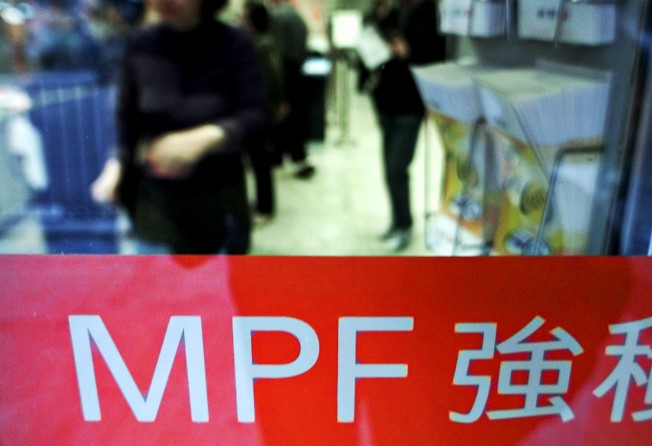
Pensions rout: Hong Kong’s MPF on track for first losing year since 2011
MPF on average lost 2.36 per cent in 11 months, with China and Hong Kong funds top losers

Hong Kong’s Mandatory Provident Fund is on track for its first full year loss since 2011, having already shed 2.36 per cent in the first 11 months of this year, according to data from Thomson Reuters Lipper.
It may end up being the MPF’s third worst year since the scheme, which covers 2.5 million employees, was launched in 2000.
This compares with a 1.5 per cent gain last year, which was the fund’s worst performance in three years.
Brokers believe there is no reason the market will bounce back in December, increasing the chances that the pension scheme will suffer a loss for the year as a whole.
China equity funds were the top loser, down an average of 11.54 per cent in the first 11 months, while Hong Kong equity funds lost 5.31 per cent in the same period. Both the Hong Kong and Shanghai stock markets hit seven-year highs in the April to early June rally but subsequently lost more than 20 per cent of their value in the third quarter, posing the worst quarterly performance since 2011. Those losses erased all the gains made in the first half of this year.
Mixed asset funds, a popular fund choice which includes both bonds and stocks, reported an average loss of 2.46 per cent. Top gainer was a Korean equity fund which rose 20.27 per cent in the first 11 months.
So far this year Hong Kong employees covered by the MPF have lost a total of HK$14.8 billion, or 2.7 per cent of their accumulated balance of assets, according to a Gadbury Group in its November MPF performance report.
In November alone, fund members lost a total of HK$ 8.2 billion, equal to 1.5 per cent of their accumulated balance, due primarily to the negative stock market performance, the Gadbury report said.
Over the past three years, however, the 2.5 million fund members still managed a positive return with average annual returns of 2.9 per cent, the Gadbury report added.
Rex Auyeung Pak-kuen, Asian president of US financial firm Principal, one of the city’s MPF providers, said this year has been a difficult one for MPF products because of the volatile performances of the mainland China and Hong Kong stock markets.
“It is hoped the anticipated slowdown from China and the anticipated rate hike in the US have been factored in, which should produce a relatively steady return in 2016. The unknown will be how tensions in the Europe and Middle East would spread into the global economy,” Auyeung said.
“Considering [these risks], a more diversified portfolio with proper asset allocation reflecting time to retirement would be desirable,” he said.
Hong Kong Investment Funds Association chief executive Sally Wong said the MPF would continue to face uncertain investment markets next year.
“The pace of interest rate hikes in the US, the magnitude of monetary easing by Japan and Europe, as well as the rebalancing of the China economy all mean that the market would brace for more uncertainty,” she said, adding that employees shouldn’t adopt a knee-jerk reaction because retirement investing is long term in nature. “The dollar cost averaging effect will help one to ride out short term volatilities,” Wong said.